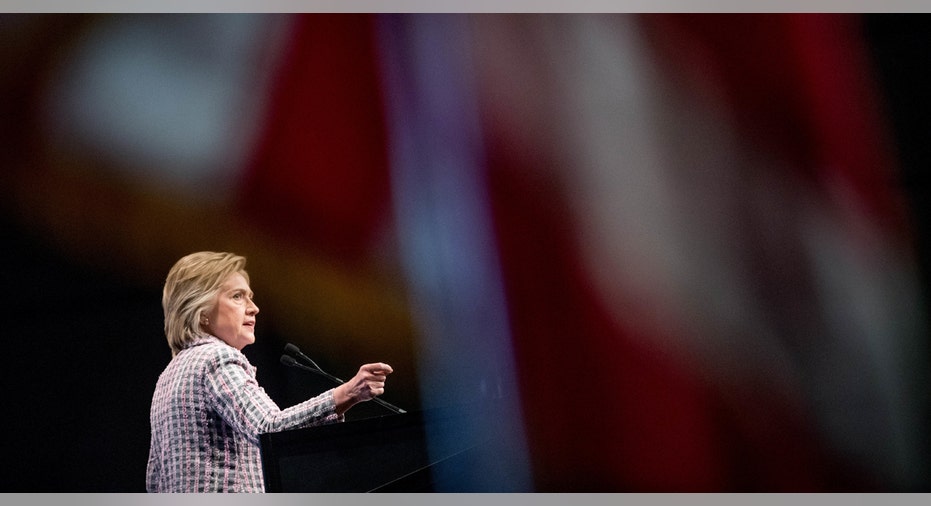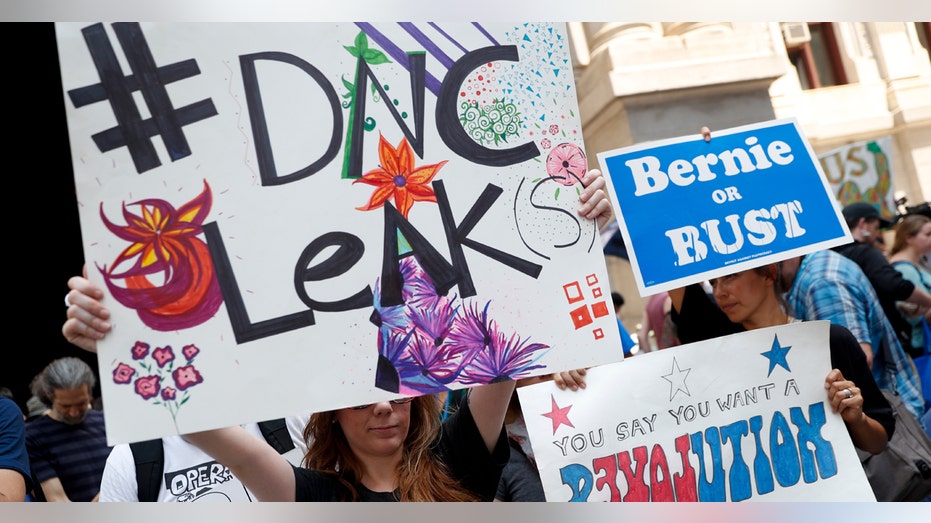Can More Policy Focus Propel Campaign Plagued by Scandal?

It’s an election cycle like the American public has never seen before: A relentless battle between a boisterous political outsider on the right, and a savvy career politician on the left.
Just one week after the Republican National Convention wrapped up in Cleveland with businessman Donald Trump nabbing the party’s nomination for president, the Democratic National Convention kicked off in Philadelphia with the goal of nominating former Secretary of State Hillary Clinton as its party’s candidate for president.
The non-traditional nature of the campaign season rolled on, as the expected fuss-free nomination process for the Democratic Party became anything but. Focus on Clinton was at times overshadowed by repeated protests from supporters of Vermont Senator Bernie Sanders, whose determination to become the Democratic nominee took him through a bitter battle with Clinton in the primary season. And on day one of the convention, DNC chairwoman Debbie Wasserman Schulz – whose leaked emails plotting a takedown of Sanders – under pressure, stepped down from her role before she ever gaveled the convention to order.
Like the DNC, the party’s presidential nominee has been plagued by scandal after scandal throughout her 2016 presidential bid. Focus has run the gamut from alleged mishandling of the 2012 terrorist attack in Benghazi, Libya during which four Americans, including a U.S. ambassador, were murdered, to a scandal involving Clinton’s use of a private e-mail server during her time working at the State Department.

Gil Troy, American presidential historian and professor of history at McGill University, said while Clinton – a politician who very much enjoys getting into the nitty gritty details of policymaking – wants to debate the issues, her scandals combined with Trump’s bombastic tone, are likely to keep her from wading too deep into the issues this campaign season.
“[Clinton] has a thoughtful take on policy, the economy. She wants to have economic equality among genders, more activist government. She has an understanding of what she wants but she can’t get it across because there’s so much noise,” he said. “She’s somewhat responsible for her scandals and can’t effectively frame those messages.”
The months following the convention flurry will see Clinton emerge stronger on policy issues, argued Dennis Kelleher, president and CEO of Better Markets and former chief counsel and senior leadership advisor to the chairman of the Senate Democratic Policy Committee.
With four months until the general election and two candidates nominated by their respective parties, Kelleher says voters will begin to turn focus from name calling and cheap shots to campaign issues, figuring out with which nominee they’re better aligned. But Troy said based on historical evidence, while Americans might think they want the substance to push out style and see policy trump personality, it often doesn’t happen.
Troy pointed to the debates, which are generally intended to show where the candidates stand on the issues most important to the voting public, and allow them time to duke it out on a prime-time stage. But he said there’s a secret side to finessing the right message – and each candidate has to get it exactly right. Bill Clinton, he said was happy to sweat it out on the campaign trail, kissing babies and shaking hands with ordinary Americans. But his wife would prefer wading in the weeds on policy at the office to meeting the voters.
“Hillary is dying for a serious policy discussion and for her to be seen as a serious policy leader. Part of her [failure to do that] is her own fault for the ‘Clinton blind spot,’ convinced by their own virtue, and they can’t see how the things they’re doing are perceived by the public.”
"Hillary is dying for a serious policy discussion and for her to be seen as a serious policy leader. Part of her [failure to do that] is her own fault for the ‘Clinton blind spot’ that they can’t see how the things they’re doing are perceived by the public.”
Ultimately, according to Kelleher, the American people will assess which candidate better understands the lives ordinary Americans live, the challenges they face, the pathways to reaching their dreams and which candidate is best positioned to help them get them there. They want to know two things: Foreign and economic policy agendas.
According to a Fox News poll released in early May, 40% of voters say the economy is the most important issue to consider when casting their ballots – trumping by a wide margin issues including national security, education, health care, immigration and social issues.
The two major-party candidates couldn’t be on more opposite sides when it comes to their approach to facilitating economic growth. Trump has outlined initiatives including simplifying the tax code and lowering rates for millions of Americans, while also renegotiating trade policies with China and initiating reforms on the Affordable Care Act.
Clinton, meanwhile, has proposed raising taxes on wealthy Americans, eliminating corporate and Wall Street tax loopholes, raising the federal minimum wage, investing in the nation’s infrastructure and making college more affordable.
While some say Clinton’s policies are an extension of President Barack Obama’s, Kelleher said the president’s work in helping bring America back from worst recession since the Great Depression should be viewed as a net positive, and a wagon to which Clinton should hitch herself…at least partially.
“There’s no question more needs to be done and that’s why Hillary has a plan: On Wall Street, it’s to go much further than Obama. Her plan on jobs is dramatically different than Obama, her college plan is much stronger, broader, and more important to job creation than Obama’s,” he said.
However, Matt Bennett, senior vice president of Third Way and a former deputy assistant to the president for Intergovernmental Affairs for President Bill Clinton, said this will be one of Clinton’s biggest challenges over the next four months: Establishing herself as a new kind of Democratic leader without distancing herself too much from Obama’s legacy.
“That’s the trickiest thing of running after two terms of your party being in power. It’s extremely hard. The reason it rarely works is because every candidate wants to be the candidate of change. She can’t be. She has to respect the successes of Obama and she does…But she does need to find ways of saying this is how far we’ve come under Obama, and I’m going to go in a somewhat new direction,” he explained.
Bennett said Clinton has been successful in putting distance between herself and Obama on issues like trade. Clinton opposes the president’s trans-pacific partnership deal, a free trade agreement among 12 nations, which aims to promote global growth and raise living standards. Opponents of TPP, including Clinton, say it doesn’t provide essential security for American workers to compete globally. Bennett said her opposition, though, has been vague, and she needs a sharp message for voters about the changes the country is facing and how she’ll be the best candidate to face them.
“The globalization technology made Americans deeply anxious about the future, their ability to earn a middle-class income and live a middle-class life. She has to talk about how the government can help people buffeted by these changes and what she’ll do to make their lives better,” Bennett said.
He said Americans can see from the data that the economy is recovering from the 2008 financial crisis, but they don’t really believe it yet.
“Her task is to point to a destination where they feel that,” Bennett said.



















